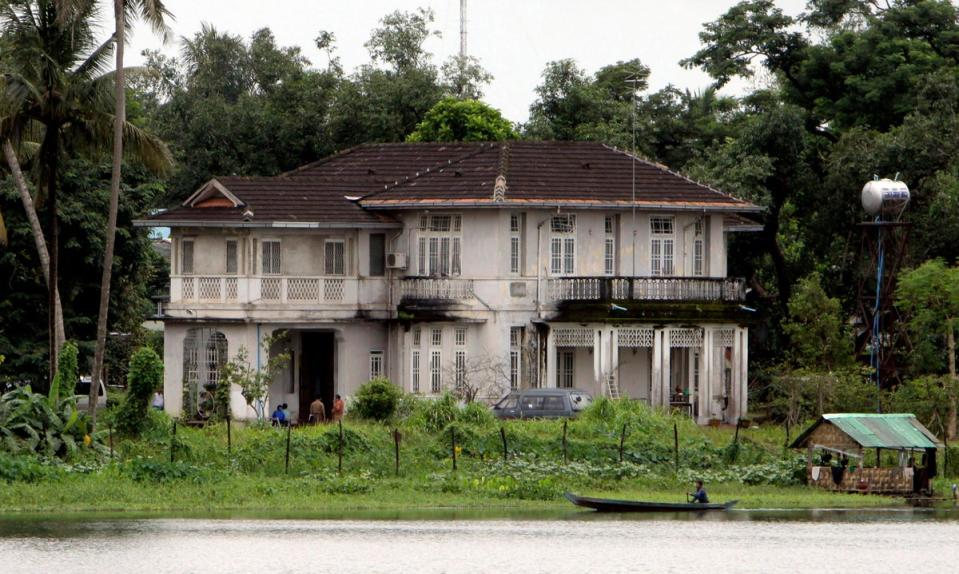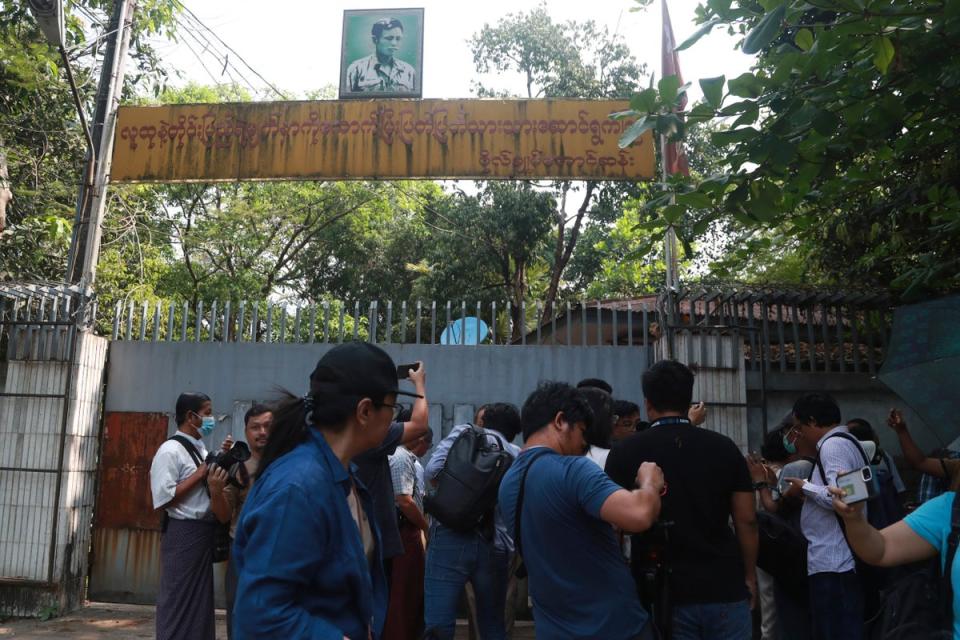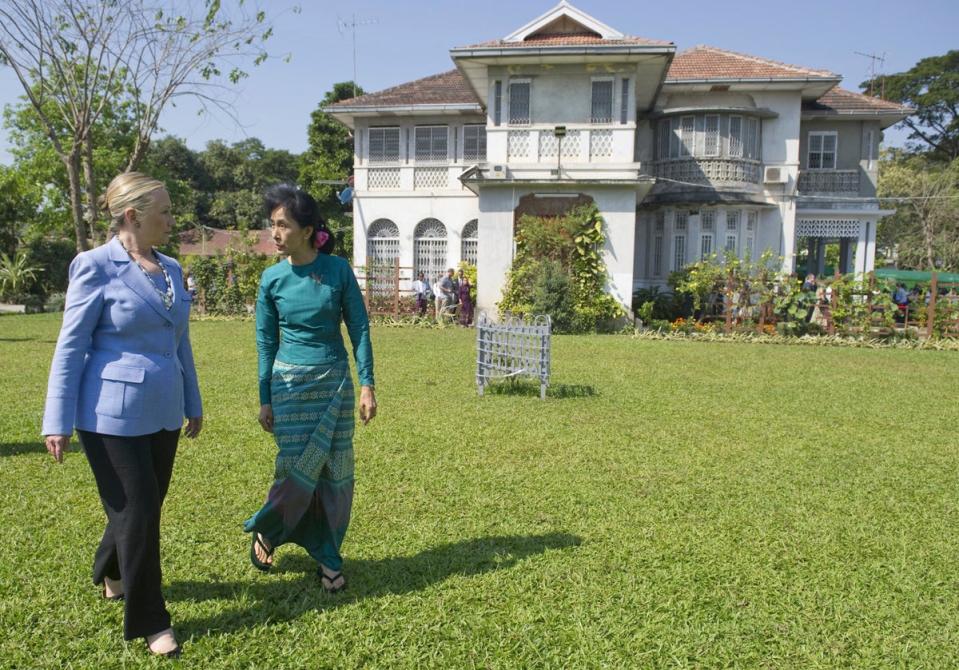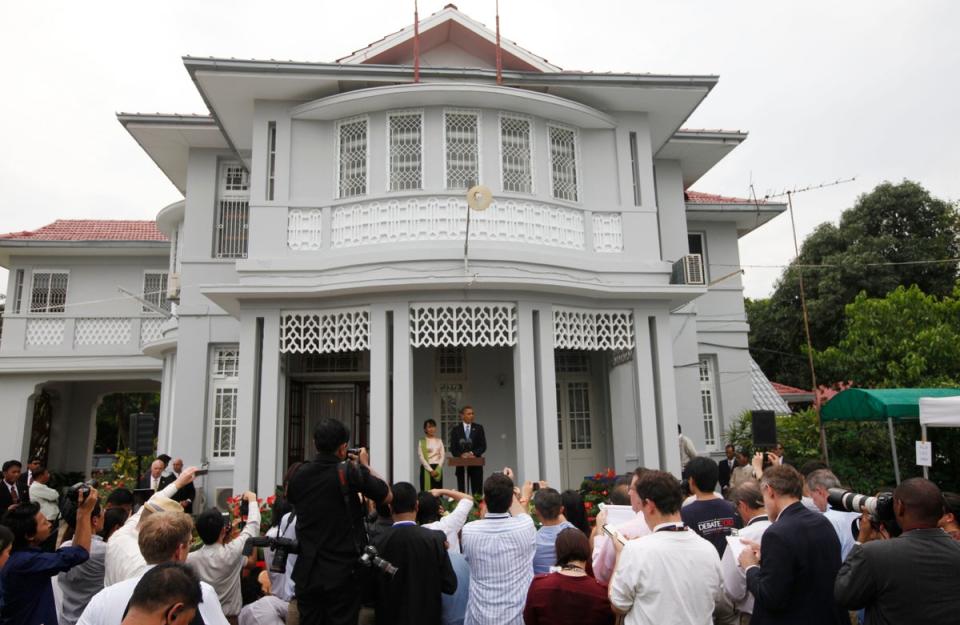Myanmar junta fails to sell off Aung San Suu Kyi’s historic £120m home
The Myanmar junta has failed in an attempt to sell off the historic family home of jailed former leader Aung San Suu Kyi after no bidders turned up at the auction.
The 1.923-acre property on Yangon's scenic Inya Lake was listed with a staggering reserve price of 315bn kyats ($150m, £118m) at the behest of the country’s supreme court, following a decades-long legal battle between the Nobel laureate and her estranged older brother Aung San Oo.
Ms Suu Kyi is currently serving 27 years in prison at an undisclosed location on trumped-up charges in the aftermath of the country’s February 2021 military coup, which wrested power from her democratically-elected government.
The National Unity Government (NUG) – Myanmar’s opposition body which describes itself as the legitimate government in exile – has designated the property at 54 University Avenue a site of cultural heritage and prohibited its sale or destruction, under threat of eventual legal punishment.
Speaking to The Independent, Ms Suu Kyi’s son Kim Aris called the Myanmar authorities’ attempt to sell off his mother’s home “state theft”.

Mr Aris said the auction was “another attack on those who fight for freedom and democracy”.
“I hope the ‘sale’ continues to attract no honest bidders, and that in the future the property can be used as she intended as a centre for the charitable foundation she set up in her mother’s name,” he said.
A small crowd made up mostly of journalists, court officials and plain-clothes police officers gathered outside the front gate of the house at 54 University Avenue on Wednesday.
Officials announced the auction’s opening by striking a small bell three times as the auctioneer held his hands up for bids. None were forthcoming.

"There is no one to bid," the auctioneer said, striking the bell to close the process. “No buyer came today so the officer in charge of the auction already left,” a witness told Reuters, requesting anonymity.
The authorities described the auction as an attempt to settle the decades-long dispute between Ms Suu Kyi and her brother, who also claims ownership of the property. He had asked the court in 2019 to sell the property and grant him a share of the proceeds.
The colonial-style mansion is itself an important slice of Myanmar’s history, and the stage for a number of key moments in its democratic struggle.

Ms Suu Kyi lived in the villa for the majority of the more than three decades she has spent in Myanmar since returning from Britain, including 15 years under house arrest at the behest of an earlier military regime.
The two-storey family home was handed down by her mother, Khin Kyi, after the 1947 assassination of her father, the independence hero General Aung San.
For most of the time she was detained in Yangon, Ms Suu Kyi was alone with just a housekeeper, and at one point had to sell some of her furniture to afford food.
During brief periods when Ms Suu Kyi was freed from house arrest, she gave impassioned speeches to crowds of supporters over the metal gates of the house. It later became the site of some of her most high-profile meetings, including with former US president Barack Obama and secretary of state Hillary Clinton.

She was living in the dilapitated building when her husband, the British academic Michael Aris, died in the UK from cancer in 1999. She was unable to leave the country to see her husband over fears of the military prohibiting her return to Myanmar.
She was sentenced to three years in prison in 2009 when an American man swam across the lake to see her.
Ms Suu Kyi moved residence to the capital Naypyitaw to attend parliament after her release in 2010, and remained there as Myanmar's de facto leader until her February 2021 ouster.

 Yahoo News
Yahoo News 
